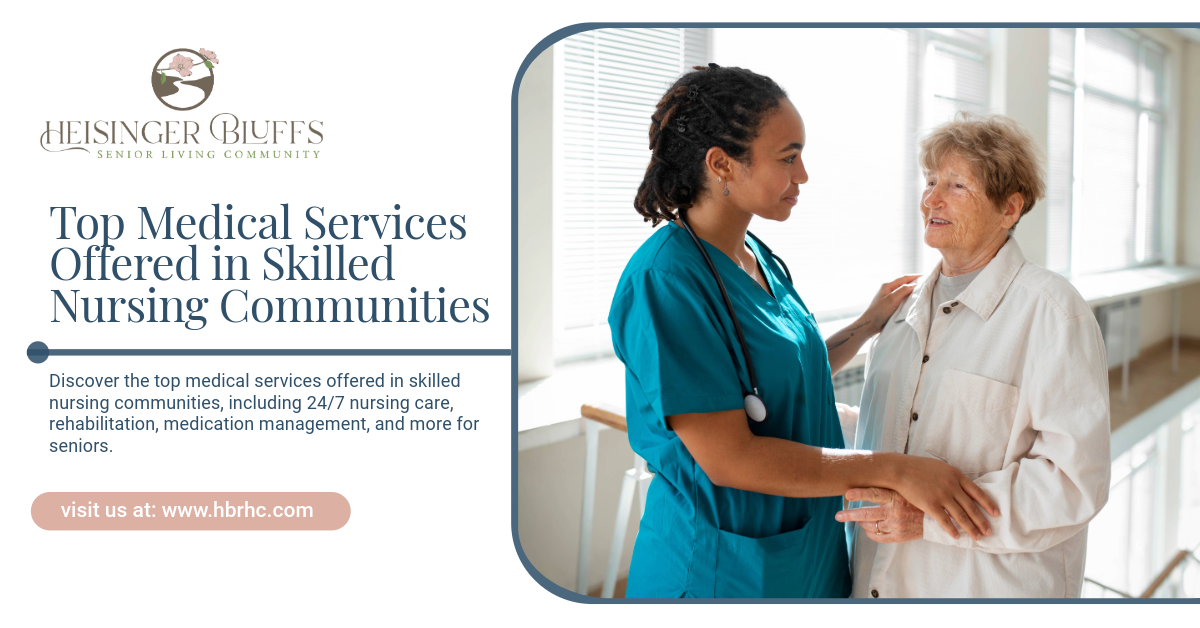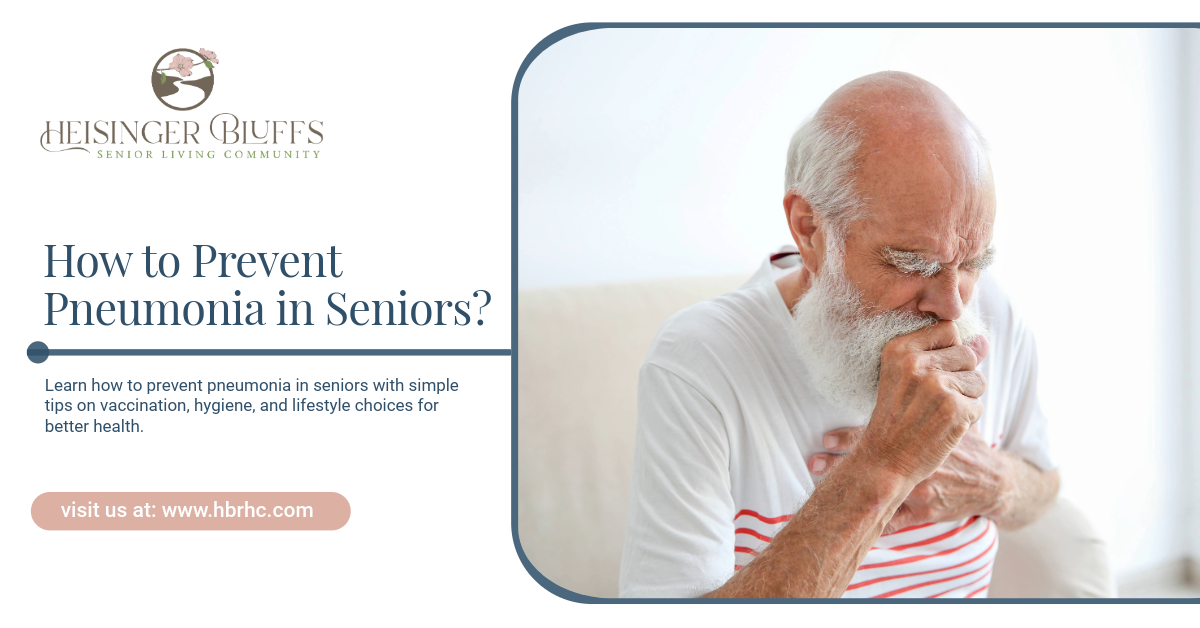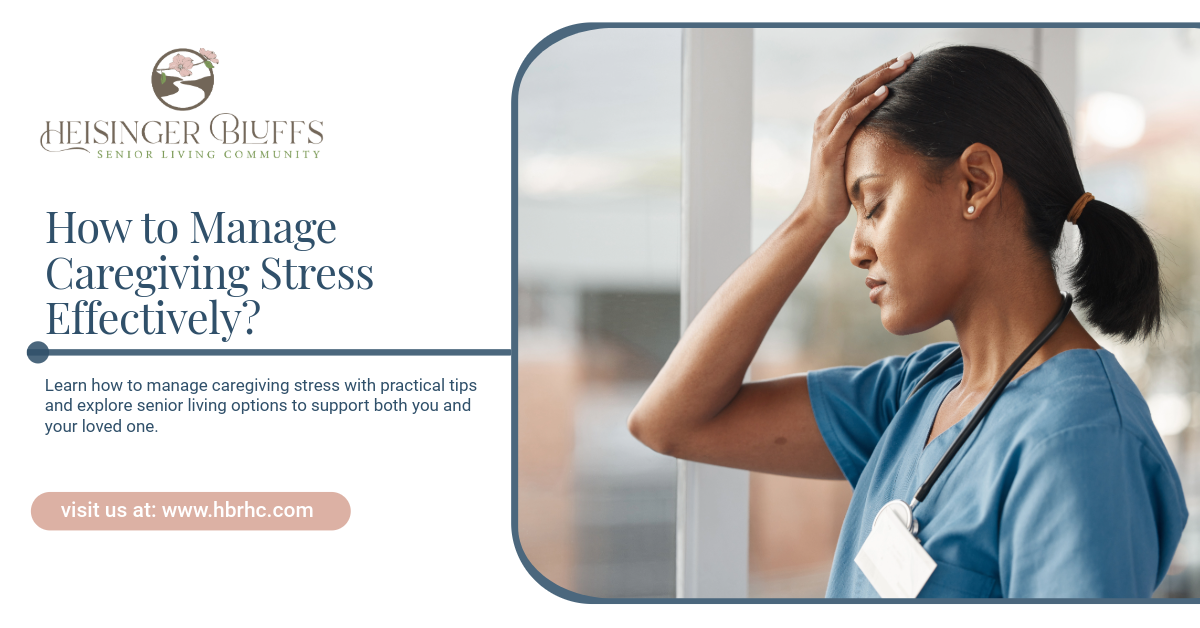Top Medical Services Offered in Skilled Nursing Communities

As our loved ones age, many require professional medical care that goes beyond what can be provided at home. Skilled nursing communities are designed to meet these needs, offering specialized services, around-the-clock care, and a safe environment for seniors with chronic conditions or post-hospitalization needs. Understanding the top medical services available can help families make informed decisions about long-term care.
What is a Skilled Nursing Community?
A skilled nursing community, also known as a nursing home or skilled care facility, provides professional medical care for seniors who need continuous supervision, rehabilitation, or specialized medical support. Unlike assisted living, skilled nursing communities are staffed with licensed healthcare professionals who can provide high-level medical care for residents with complex health needs.
Top Medical Services in Skilled Nursing Communities
Skilled nursing communities offer a wide range of medical services designed to meet the unique needs of older adults.
1. 24/7 Nursing Care
The cornerstone of skilled nursing communities is around-the-clock nursing care. Services include:
- Monitoring vital signs and overall health
- Administering medications and treatments
- Managing chronic conditions such as diabetes, heart disease, or COPD
- Responding to medical emergencies immediately
Continuous monitoring ensures that residents receive timely care and reduces the risk of complications.
2. Rehabilitation Services
Many residents enter skilled nursing communities for short-term rehabilitation following surgery, injury, or illness. Rehabilitation services may include:
- Physical Therapy (PT): Helps seniors regain mobility, balance, and strength after surgery or injury
- Occupational Therapy (OT): Assists with daily activities, improving independence and quality of life
- Speech Therapy (ST): Supports communication, swallowing, and cognitive function
Rehabilitation programs are customized to meet each resident’s goals and progress.
3. Medication Management
Proper medication management is critical for seniors, especially those with multiple prescriptions. Skilled nursing communities provide:
- Medication administration and tracking
- Education on proper usage and side effects
- Coordination with physicians and pharmacies
- Regular review to prevent drug interactions
This reduces errors and ensures that residents stay on track with their prescribed treatment plans.
4. Wound Care and Chronic Disease Management
Skilled nursing facilities often handle complex medical needs such as:
- Wound care: Treatment of surgical wounds, pressure ulcers, and skin conditions
- Chronic disease management: Monitoring and care for conditions like diabetes, hypertension, or heart disease
- IV therapy and injections: Administered safely under professional supervision
Specialized care prevents complications and promotes faster recovery.
5. Palliative and Hospice Care
For residents with serious or terminal illnesses, skilled nursing communities provide:
- Pain and symptom management
- Emotional and spiritual support
- Support for families during end-of-life care
- Coordination with hospice teams
This ensures comfort, dignity, and quality of life in residents’ final stages.
6. Nutrition and Dietary Services
Proper nutrition is essential for recovery and long-term health. Skilled nursing communities offer:
- Dietitian-designed meal plans tailored to medical needs
- Assistance with feeding for residents with mobility or swallowing challenges
- Specialized diets for conditions like diabetes, heart disease, or renal issues
Nutrition services support overall health and complement medical treatments.
7. Social and Mental Health Support
Physical health is only one part of well-being. Skilled nursing communities also focus on emotional and mental health through:
- Counseling and therapy services
- Social activities and engagement programs
- Memory care programs for residents with dementia or Alzheimer’s
- Support groups for residents and families
A holistic approach ensures that residents’ emotional and cognitive needs are met.
8. Advanced Medical Technology and Monitoring
Modern skilled nursing facilities use technology to enhance care, including:
- Electronic health records (EHR) for accurate care tracking
- Remote monitoring devices for vital signs
- Telemedicine access for consultations with specialists
- Emergency response systems in resident rooms
These tools improve efficiency, safety, and the quality of care provided.
Benefits of Skilled Nursing Communities
Choosing a skilled nursing community offers many advantages:
- Comprehensive medical care: Licensed professionals provide high-level care for complex health needs
- 24/7 supervision: Continuous monitoring ensures immediate response to health changes
- Customized rehabilitation: Individualized therapy plans help residents regain independence
- Peace of mind for families: Families can trust that their loved ones are in a safe, supportive environment
- Holistic care: Physical, mental, and social needs are addressed in a structured setting
Common Medical Services Offered
| Service Type | Description |
|---|---|
| 24/7 Nursing Care | Continuous monitoring, medication administration, and emergency response |
| Rehabilitation (PT/OT/ST) | Physical, occupational, and speech therapy tailored to individual needs |
| Medication Management | Daily administration, tracking, and education |
| Wound & Chronic Disease Care | Treatment of surgical wounds, ulcers, diabetes, heart disease, and more |
| Palliative & Hospice Care | Pain management, end-of-life support, emotional and spiritual care |
| Nutrition & Dietary Services | Specialized meal plans, assistance with eating, dietitian oversight |
| Mental & Social Support | Therapy, counseling, memory care programs, social engagement |
| Advanced Technology | EHR, remote monitoring, telemedicine, emergency call systems |
Myths About Skilled Nursing Medical Care
- Myth 1: Skilled nursing is only for the very ill.
Fact: Many residents benefit from rehabilitation or temporary care following hospitalization. - Myth 2: Residents lose independence in skilled nursing communities.
Fact: Care plans are personalized to encourage independence while providing necessary support. - Myth 3: Skilled nursing is just a “nursing home.”
Fact: Modern communities offer rehabilitation, therapy, medical monitoring, and holistic support.
Final Thoughts
For families seeking comprehensive medical support for their loved ones, Heisinger Bluffs provides a skilled nursing community with 24/7 care, rehabilitation services, medication management, and holistic support designed to enhance both health and quality of life. Contact us today!
Frequently Asked Questions
What types of therapy are offered in skilled nursing communities?
Physical, occupational, and speech therapy programs are available and tailored to residents’ needs.
Are medications managed in skilled nursing facilities?
Yes, medication management is a key service, ensuring proper administration and preventing errors.
Do skilled nursing communities provide 24/7 medical supervision?
Absolutely. Nursing staff are available around the clock to monitor health and respond to emergencies.
Can residents receive hospice or palliative care?
Yes, specialized care for pain management and end-of-life support is offered.
How is nutrition handled in skilled nursing communities?
Dietitians create heart-healthy, diabetic-friendly, or condition-specific meal plans, with assistance as needed.
Sources:
- https://www.ncoa.org/article/the-top-10-most-common-chronic-conditions-in-older-adults/
- https://pmc.ncbi.nlm.nih.gov/articles/PMC6322948/
- https://www.mayoclinichealthsystem.org/hometown-health/featured-topic/5-tips-for-managing-medications-for-aging-parents-during-a-pandemic
- https://pmc.ncbi.nlm.nih.gov/articles/PMC4540168/











